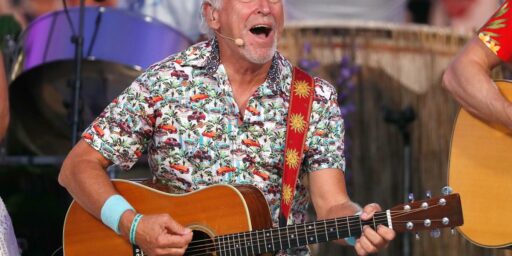Au Revoir to Foie Gras
Foie gras will soon be illegal in California, so some are indulging as much as possible now.
Foie gras will soon be illegal in California, so some are indulging as much as possible now.
In eight months, the sale of foie gras will be banned in California. But for seven hours on Friday night, at a restaurant appropriately known as Animal, three chefs presented an eight-course meal that was nothing short of a glorification of this soon-to-be outlawed delicacy. There was smoked foie gras, roasted foie gras, steamed foie gras and liquefied foie gras, injected into agnolotti. It was served with veal tongue, yogurt, prosciutto, mustard ice cream and truffles. There was even a foie gras dessert: a brownie sundae with foie gras Chantilly.
With all its gluttonous excess, and with the backdrop of the animal rights protesters, the sold-out dinner became the fattiest of food as political protest, offering a clash of competing passions in a battle that has reverberated across the nation but finally settled here, the first state in the nation to criminalize the sale of foie gras, the fattened liver of a goose or a duck.
It was also a perhaps belated realization by these chefs and their fans that a law signed eight years ago is truly taking effect and is about to change the way they do business drastically, putting California on the front lines of the battle about force-feeding ducks and geese to produce the silky liver delicacy.
“I want people to have the freedom to eat what they want,” said Ludo Lefebvre, one of the chefs behind the stove here on Friday. “Animal rights people would turn everyone into a vegan if they could. I don’t want animal rights people to tell me what to eat. Today it’s foie gras. Tomorrow it’s going to be chicken, or beef.”
He continued: “Foie gras is one of the greatest ingredients, a French delicacy. I was born and raised with foie gras. It’s like if you took kimchi away from the Korean people.”
Yes, it’s exactly like that.
Mr. Lefebvre’s views were echoed by diners — many of whom said they worked in the food industry, including a representative from a foie gras producer — as they walked in the door. “There is a lot of misinformation out there,” said Tom Feher, 29, a Los Angeles lawyer. “These animals are not mistreated. The last thing you’d want to do is mistreat an animal which you’re using to produce a luxury ingredient such as foie gras.”
Indeed, I’m sure the ducks are thrilled about it and would vote against the ban if only they could.
This is not the first time a community has tried to ban foie gras. It was outlawed in Chicago in 2006, producing a backlash from restaurants that, speakeasy-like, served foie gras secretly. The ban lasted barely two years.
“There was this sense of embarrassment, like here was the City Council intervening in restaurant menus,” said Mark Caro, a Chicago Tribune journalist who wrote a book, “The Foie Gras Wars,” about the failed effort.
But the California law was approved overwhelmingly, and support for it appears as strong as ever. And on the other side, there is nothing short of a cultlike following for the white-toqued leaders in the kitchen Friday: Mr. Lefebvre, who has pioneered pop-up restaurants across the country, and the two Animal chefs, Jon Shook and Vinny Dotolo.
Mr. Shook said the 320 spots for the “You Gotta Fight for Your Right to Foie!” dinners on Friday and Saturday night sold out in 16 minutes; four telephone operators were assigned to deal with the crush.
And that was at $175 a head for food alone, with an additional $50 for a wine, beer and Champagne pairing.
Bill Easterly quips, “Times are not so good for the rich either.”
On a more serious note: What’s up with an eight year phase-out? Either there’s political consensus that foie gras is cruelty to animals or there isn’t. I can understand a couple of months to change menus, deplete existing stocks, and the like–but eight years?






Wikipedia sez:
I suppose that “foie fras” was banned, rather than “gavage” for political reasons (“humane” production would still bother the vegans).
If geese are like us we only need to give them access to a McDonalds.
Oh good, now the only case of industrially torturing or mistreating animals for profit in the West is but a memory.
I am quite sure that if foie gras was an American product there wouldn’t be all this “outrage”. Who cares about the chicken factories required for KFC and other fast foods?
@Murray: There’s actually a movement against cruel farming and ranching practices. But foie gras is considered a luxury indulgence whereas fried chicken is considered a normal, necessary foodstuff.
@James Joyner:
I don’t buy that argument. First because fried chicken is NOT necessary food stuff. Second because it’s like saying child labor is tolerable to make cheap stuff for Wallmart but intolerable to make silk carpets.
I’d much rather eat fois gras than fried chicken. Hell, I’ll eat any liver–including cod–before I’ll go to fried chicken. Guess I’ll have to stay out of CA now.
But I am glad that CA is doing so well financially that it can afford to chase business away, even if only through forcing menu changes.
My first response to the whining about foie gras is that these tools desperately need a life. On the other hand, if somebody decided to outlaw homebrewing, I’d probably do it illicitly anyway.
If there was a dish that relied on the animal being, say, constantly anxious, or in chronic pain in order to induce the hormones that gave the meat a certain je-ne-sais-quoi, I wonder how the debate about that dish would go. From that to foie gras, the difference is that the animal’s emotional state is just collateral damage from the same treatment. So perhaps the bottom line is that someone who indulges in that sort of behavior isn’t the kind of person you want to spend a lot of time with anyway.
@John Burgess: Somehow I doubt the duck gavage industry will make or break any states economy.
@John Burgess:
In related news, the cod fishery is still on the ropes.
(John’s post did make me LOL. So over the top. He’s going to stay out of California because foie gras is vital to (a) his happiness, and (b) the economy at large.)
@James Joyner:
In other words, people are against cruelity to animals as long as it’s something they didn’t like anyways. But if one of their favorite foods is produced inhumanely, well, how dare you!
Nothing will benefit human health and increase chances for survival of life on Earth as much as the evolution to a vegetarian diet.
–Albert Einstein
We must fight against the spirit of unconscious cruelty with which we treat the animals. Animals suffer as much as we do. True humanity does not allow us to impose such sufferings on them. It is our duty to make the whole world recognize it. Until we extend our circle of compassion to all living things, humanity will not find peace.
~Albert Schweitzer, The Philosophy of Civilization
@john personna: There’s cod and then there’s cod. Atlantic cod is indeed in troube; not so for Pacific cod. What’s more, eating the nasty bits is part of being frugal and responsible. Why throw them away or feed them to pets when they’re perfectly good human food?
I’ll be the judge of what makes me happy, if you please. And if you don’t please? Well…
No, CA will not live or die on the premium food market. It will die, however, because of asinine laws that chase businesses (and jobs) away. Outlaw fois gras; outlaw fast food; outlaw bottled water… Why not? They all appear fully made- out of thin air, right? Nobody has to make them or bottle them or ship them. It’s all a fan dance based on legislative and voter masturbation anyway.
You got me…but my guess would be that it’s a punt. Eight years ago, someone up for re-election threw a constituency a bone and everyone forgot about it until now. Just a guess, though.
As for the ban itself…..not so sure the kimchi comparison holds any weight. If there were ethical concerns about how kimchi is made….maybe.
Also, isn’t the law directed at the practice of force-feeding specifically and not the eating of duck livers generally? It’s a debate about marketing. Will it be French-legal foie-gras? Or California-legal faux-gras? Big deal.
@John Burgess:
I think if those things appeared out of air it would have a smaller environmental impact.
As with most meat-based foods, knowing where it comes from is what’s important. There are plenty of American foie-gras (or gavage) farms that are clean, cruelty free, and produce fantastic tasting products.
There are a few better videos out there, but this is the first one that popped up showing a good foi-gras farm in action:
http://www.youtube.com/watch?v=ABeWlY0KFv8
And yes, there are cruel farms that do confine the birds, and practice much worse habits. Fortunately with increased awareness, those farms are disappearing.
My entire family is in the farming business. I’ve worked on many of livestock farms in my youth. Seeing what I’ve seen, I do feel worse for most chickens on the market than most of the birds kept at American foie-gras farms.
There is another problem. Most people complaining about foie gras never saw farm animals face to face. They aren´t humans. They aren´t even pets.